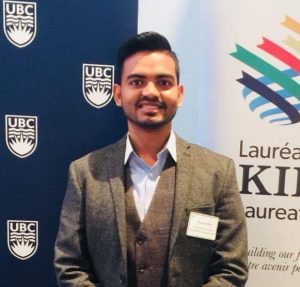ELT in Nepal: Rethinking authenticity, creativity, and localization

English has long been dominant in the Asian educational landscape, stemming from an instrumental ideology of envisioning upward socioeconomic mobilities. In a country like Nepal where most citizens are looking for their better future, learning English skills is associated with “hopes” and “desires,” also allowing the development of uncritical narratives of the roles and status of English. While we can’t ignore the importance of English for various purposes as well as creating equal opportunities for ALL children to learn English, we must also be critical of the influences the uncritical recommendations and practices of English can have on local language ecology. For example, while the State is struggling to effectively implement mother-tongue-based multilingual education and there is a decline in appreciation for the use of mother-tongue in education (both because of elite narratives created at the macro-level), stressing the role of English in education as a medium of instruction or even asking for its legalization in other social domains is not only wrong but harmful. One must be very careful in defining the role and status of English in Nepal.
This, however, doesn’t mean that we shouldn’t teach English but disrupt the perception of, for example, “We can’t survive without English.” There are people surviving without English in Nepal and beyond. Nevertheless, there is no wrong in teaching English as an additional language. The more languages children learn, the more creative and critical they become. So, teaching English as a foreign language in Nepal is an important part of the K-12 curriculum but we need to re-envision it from the “local” viewpoints to create a safe and comfortable space for Nepali multilingual and multiethnic children. ELT teachers and practitioners need to reflect on ELT practices that create injustice and inequalities for various social groups, often originating from dominant language ideologies and mechanisms.
In this special issue, we have tried to address the issues of “authenticity”, “creativity”, and “localization” in ELT practices. We sought contributions to the teaching and learning of English, highlighting authenticity in ELT, which refers to a sense of ownership of teaching/learning materials and cognitive and social activities in ELT classrooms: for example, whose texts, whose varieties of English, whose culture and knowledge we consider as valid. ELT practitioners and learners also employ creativity in incorporating meaningful texts for a realistic world, that is, what strategies (e.g., translation, codemixing/codeswitching, translanguaging) we use to make our teaching/learning processes more accessible to our students. Meanwhile, we need to (re)think if and to what extent we localize our teaching/learning activities for sustainable and linguistic, and culturally responsive practices. We hoped to together challenge the hegemonic ELT practices in Nepal, warranting more linguistic human rights and linguistic and cultural identities.
In this issue, we have included four blog posts and one exclusive interview. In the first post, Umesh Saud critically analyzes a recently published English language textbook of Grade 11, with special attention to the types of texts that are included and the ideologies embedded in the process of selecting those texts. He argues that avoiding/minimizing local and indigenous culture, contexts, and texts in ELT textbooks is the result of the prevalence of the traditional westernized ideology and advocates the promotion of Nepali culture through the inclusion of indigenous texts in the textbooks.
In the interview, Dr. Ram Ashish Giri dives deep into the status of English in Nepal and its future, policies, and practices of English language teaching in multilingual Nepal, ‘authenticity’ in ELT, ‘localization’ in ELT materials, and the roles of English teachers and practitioners.
Similarly, in the second blog post, In the third article, Mohan Singh Saud (also the author of the grade 11 textbook) shares his ideas of rethinking authenticity concerning ELT texts and materials in the changing world and shares his experiences of the politics of undermining the textbook author’s agencies during the text selection.
Likewise, in the fourth article Binod Duwadi shares teachers’ perceptions of non-verbal communication like eye contact, facial expressions, and gestures and their pedagogical implication based on the views collected from English teachers.
Finally, in the fifth blog post, Gyanu Dahal reflects on the situations of teaching English before and during COVID-19, indicating how the classroom culture has been changed due to this emergency and the challenges teachers and students faced to cope with this situation. Reflecting on her own experiences, she suggests some tips for effective virtual lessons and needs for teachers to be equipped with skills and traits for online teaching.
Here is the list of blog posts and interview of this issue:
- Undermining of “local” in new English textbook for Grade XI by Umesh Saud
- English is one of the local languages in Nepal: Dr. Giri
- Rethinking authenticity in ELT texts and materials: A perspective of an author by Mohan Singh Saud
- Roles of nonverbal communication in large ELT classrooms by Binod Duwadi
- Changing assets in ELT classroom culture: Reflections on teaching during the pandemic by Gyanu Dahal
Now, I would like to thank the entire team of ELT Choutari in general and Mohand Singh Saud (the associate editor of this issue), Jeevan Karki, Ganesh Bastola, Babita Chapagain in particular for their rigorous effort in reviewing and editing the blog pieces. Similarly, I am thankful to all the team of reviewers for their reviews and recommendations for publications. I’m equally thankful to all contributors to this issue and special thanks go to Dr. Ram Ashsish Giri for his exclusive interview.
Finally, if you enjoy reading the articles, please feel free to share in your circle, and of course, drop your comments in the boxes below. Likewise, please write about your experiences, reflections, case studies, reviews, or any other scholarly pieces for our future publications and email us at 2elt.choutari@gmail.com
Wish you a happy Tihar and Chhat festivals!
Happy Reading!

Pramod Sah, Ph.D. Candidate & Killam Scholar
Guest editor of the issue
(Department of Language & Literacy Education,
Faculty of Education, The University of British Columbia, Canada)
